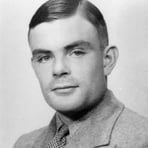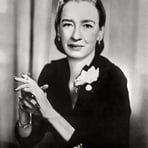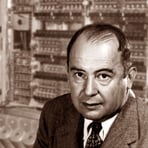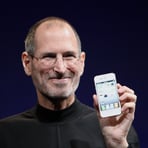Architects of the Cyber Mind
A Timeline of Tech’s Unsung Heroes
AI DISCUSSIONS
2/15/20253 min read
Architects of the Cyber Mind: A Timeline of Tech’s Unsung Heroes
The technology we rely on today didn’t appear overnight. It was built by visionaries—mathematicians, engineers, and programmers—who laid the foundation for modern computing, artificial intelligence, and the internet.
From early codebreakers to AI pioneers, here’s a look at some of the minds that shaped our digital world.
Note: This list is by no means comprehensive. Many brilliant minds contributed to technological progress, and while we highlight key figures, countless others played equally vital roles.
Early Foundations (1800s–1940s): Laying the Groundwork for Computing
Before we had computers, we had ideas—big, bold, and often centuries ahead of their time. The 19th and early 20th centuries saw mathematicians and engineers theorizing the very nature of computation. Their groundbreaking work in logic, mechanical computing, and cryptography laid the foundation for everything that followed.
Charles Babbage (1791–1871) & Ada Lovelace (1815–1852)
Babbage designed the Analytical Engine, an early mechanical computer that could theoretically perform any calculation.
Lovelace wrote the first computer algorithm, realizing that machines could manipulate symbols, not just numbers—an insight that foreshadowed modern programming.
George Boole (1815–1864)
Developed Boolean algebra, a system of logic that became the backbone of digital computing. If you’ve ever used “AND,” “OR,” or “NOT” in a search query, you’re using Boole’s logic.
Alan Turing (1912–1954)
Cracked the Enigma code during WWII, helping the Allies win the war.
Proposed the Turing Test, which remains a benchmark for evaluating machine intelligence. His work formed the conceptual basis for artificial intelligence.
Mid-Century Innovators (1940s–1970s): Defining Modern Computing
With theoretical foundations in place, the mid-20th century saw the birth of programmable computers, digital logic, and early artificial intelligence. These pioneers transformed computing from an abstract idea into a working reality.
Claude Shannon (1916–2001)
Created information theory, defining how data is transmitted, compressed, and stored.
Introduced binary logic for circuits, proving that electrical switches could process complex calculations.
John von Neumann (1903–1957)
Designed the stored-program architecture, the standard blueprint for modern computers, where data and programs are kept in memory.
Grace Hopper (1906–1992)
Developed COBOL, one of the first programming languages designed for business use.
Championed the idea that computers should use human-readable language, paving the way for modern programming.
John McCarthy (1927–2011)
Coined the term “Artificial Intelligence” and created LISP, an early AI programming language.
Marvin Minsky (1927–2016)
A pioneer in machine learning and robotics, pushing AI research forward in its early years.
Douglas Engelbart (1925–2013)
Invented the computer mouse and introduced interactive computing, demonstrating in 1968 what would later become modern graphical interfaces.
Maurice Wilkes (1913–2010)
Built the EDSAC, the first practical stored-program computer, bringing von Neumann’s concepts to life.
Ken Thompson & Dennis Ritchie (Born 1943 & 1941–2011)
Created Unix and the C programming language, laying the foundation for modern operating systems, including Linux and macOS.
The Digital Revolution (1970s–1990s): The Rise of Personal Computing & the Internet
During the late 20th century, computers became more personal, networks connected the world, and software took center stage. These innovators transformed computers from research tools into everyday essentials.
Alan Kay (Born 1940)
Pioneered graphical user interfaces (GUIs) and object-oriented programming, inspiring modern operating systems.
Robert Kahn & Vinton Cerf (Born 1938 & 1943)
Developed TCP/IP, the protocol that allows computers to communicate over the internet.
Tim Berners-Lee (Born 1955)
Invented the World Wide Web, creating hyperlinks and the first web browser to connect people across the world.
Linus Torvalds (Born 1969)
Created Linux, an open-source operating system that powers most of the internet’s infrastructure.
Steve Jobs (1955–2011)
Popularized the GUI, making computers user-friendly and accessible.
Revolutionized mobile computing with the iPhone, merging phones, music, and the internet.
Bill Gates (Born 1955)
Co-founded Microsoft and developed Windows, making computing accessible to businesses and individuals worldwide.
The AI Boom (2000s–Present): Machines That Learn
As computing power exploded, so did our ability to create intelligent systems. The last two decades have been defined by rapid advancements in artificial intelligence, deep learning, and cloud computing.
Larry Page & Sergey Brin (Born 1973 & 1973)
Founded Google, transforming how we search, store, and process information.
Geoffrey Hinton, Yann LeCun, & Yoshua Bengio
Pioneers of deep learning, designing neural networks that enable machines to recognize patterns, from images to speech.
Jürgen Schmidhuber & Richard Sutton
Advanced reinforcement learning, allowing AI to learn through trial and error—essential for robotics and gaming AI.
Demis Hassabis & David Silver
Created AlphaGo, proving AI could outperform humans in complex strategic thinking.
Elon Musk, Sam Altman, & OpenAI Researchers
Leading efforts in AGI (Artificial General Intelligence), pushing AI towards human-like reasoning.
Jensen Huang (Born 1963)
CEO of NVIDIA, pioneering AI hardware and GPU advancements, making modern AI breakthroughs possible.
Final Thoughts: Honoring the Builders of the Digital Age
Each of these individuals played a role in shaping the world we live in today. From early logic pioneers to AI researchers pushing the limits of machine intelligence, their work has built the foundation of our digital future.
And yet, this list barely scratches the surface. Behind every breakthrough, there are teams of brilliant minds whose names we may never know. Progress is rarely the work of just one person—it’s a collective effort spanning generations.
So the next time you search for an answer, swipe on a touchscreen, or chat with an AI, take a moment to appreciate the visionaries behind it all. Their brilliance didn’t just create new technologies—it expanded what we believed was possible.
Who knows?
Maybe the next big leap in tech will come from someone inspired by their work.
Maybe even you!
#TechPioneers #ComputerScience #AIHistory #TechEvolution #CyberMind #Innovation #ComputingLegends #AlanTuring #GraceHopper #ClaudeShannon #TimBernersLee #SteveJobs #GeoffreyHinton #JohnVonNeumann #LinusTorvalds #ArtificialIntelligence #DeepLearning #OpenSource #MachineLearning #TheFutureIsNow #TechInnovators









Ready to Grow Your Business with Tailored Marketing Solutions?
Let’s create a strategy designed just for you. Get in touch today and start building your online presence with Market Magic Media.
© 2024. All rights reserved.
Home
Services
